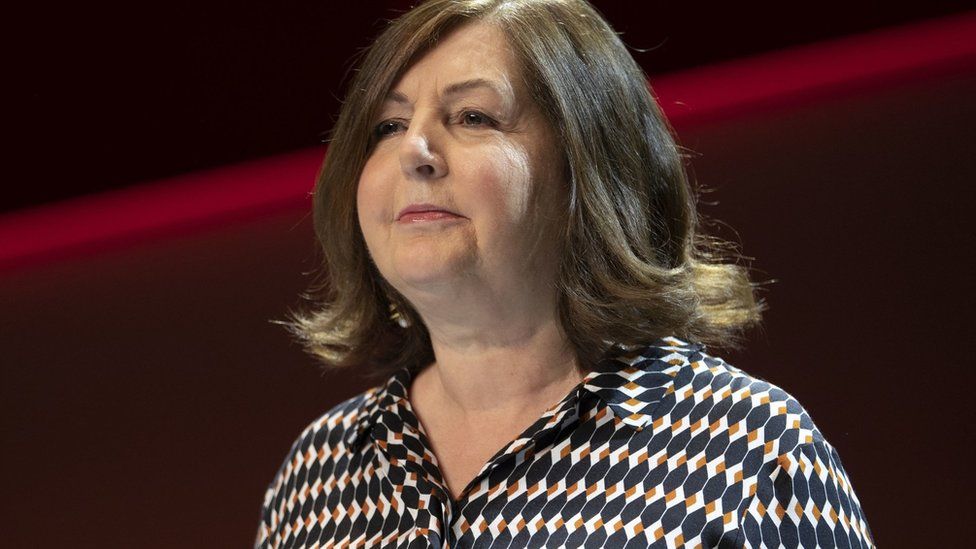Channel 4 News boss says media have right to call politicians 'liars'
- Published

Channel 4's head of news has defended the right of journalists to call out politicians for telling lies.
Dorothy Byrne delivered a keynote speech at the Edinburgh TV Festival on Wednesday, calling Prime Minister Boris Johnson a "coward" for not granting news interviews.
She also said he was "a known liar".
Byrne told the BBC: "If someone has deliberately spoken an untruth and we have evidence, we have to consider saying that what is said is a lie."
In her MacTaggart Lecture, she said: "What we all need to decide: what do we do when a known liar becomes our Prime Minister? I've talked to journalists from several television organisations about this issue. They said they would be loath to use that word 'liar'.
"Remember when Andrew Marr told [former defence secretary] Penny Mordaunt her claim that the UK couldn't stop Turkey from joining the EU was 'strange'?
"It was strange, but it was also untrue - a lie. Is it time for us to start using the L-word? I believe that we need to start calling politicians out as liars when they lie. If we continue to be so polite, how will our viewers know that politicians are lying?"
She added that it "isn't necessarily obvious" to the audience when politicians are untruthful in interviews.
"They are not journalists, they don't have all day to research stories," she said on BBC Radio 4's Today programme on Thursday. "Journalists have a purpose. We go away and study and research whether what politicians say is true and then we ask them informed questions and make them accountable."
'They should come onto television'
Byrne lamented the time given over to journalistic scrutiny by the present prime minister, former PM Theresa May and leader of the opposition Jeremy Corbyn.
"Boris Johnson and Jeremy Corbyn are cowards," she said. "If they really believe in the policies they promote, they should come onto television to explain them, to allow them to be scrutinised and to justify them."
Byrne, who was made Channel 4's editor of current affairs in 1998, also spoke about an industry that she said was rife with sexism..
"That's one of the things about being an old lady, you gather a lot of information over the years. To men who have behaved badly in the past, I say this: you know who you are. And so do I.
Her views were well-received by others in the the media industry.
Allow Twitter content?
This article contains content provided by Twitter. We ask for your permission before anything is loaded, as they may be using cookies and other technologies. You may want to read Twitter’s cookie policy, external and privacy policy, external before accepting. To view this content choose ‘accept and continue’.
Allow Twitter content?
This article contains content provided by Twitter. We ask for your permission before anything is loaded, as they may be using cookies and other technologies. You may want to read Twitter’s cookie policy, external and privacy policy, external before accepting. To view this content choose ‘accept and continue’.
Allow Twitter content?
This article contains content provided by Twitter. We ask for your permission before anything is loaded, as they may be using cookies and other technologies. You may want to read Twitter’s cookie policy, external and privacy policy, external before accepting. To view this content choose ‘accept and continue’.
- Published24 August 2017